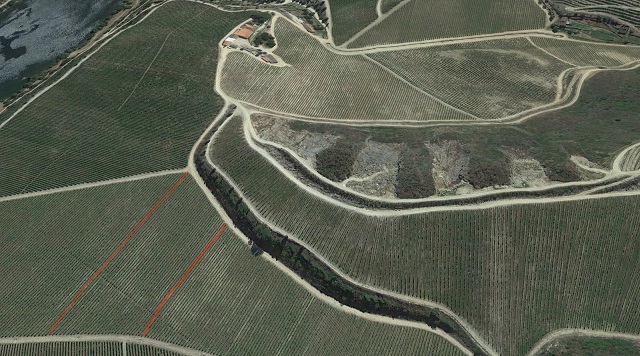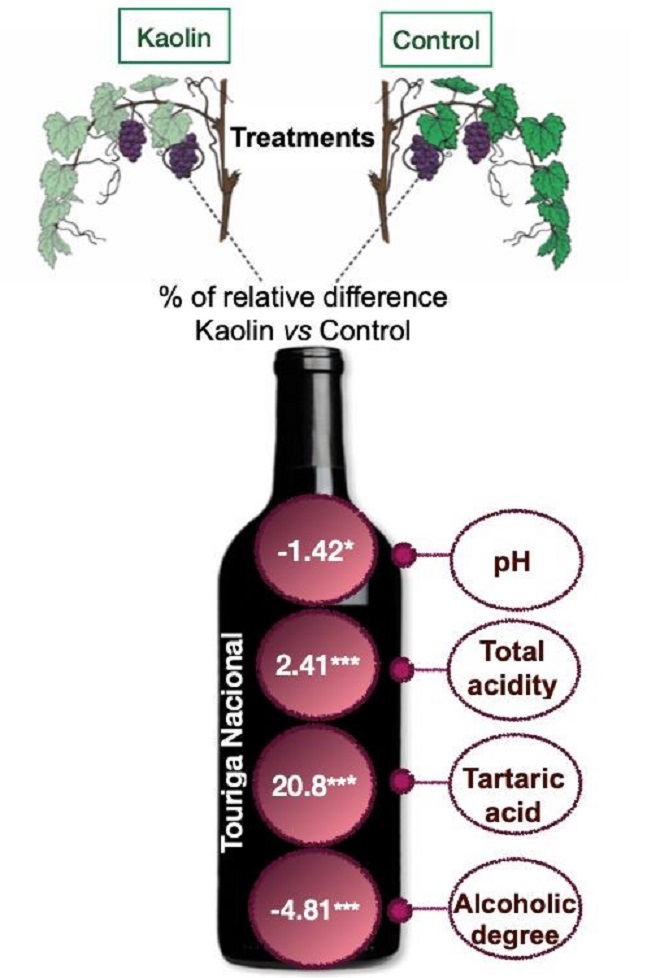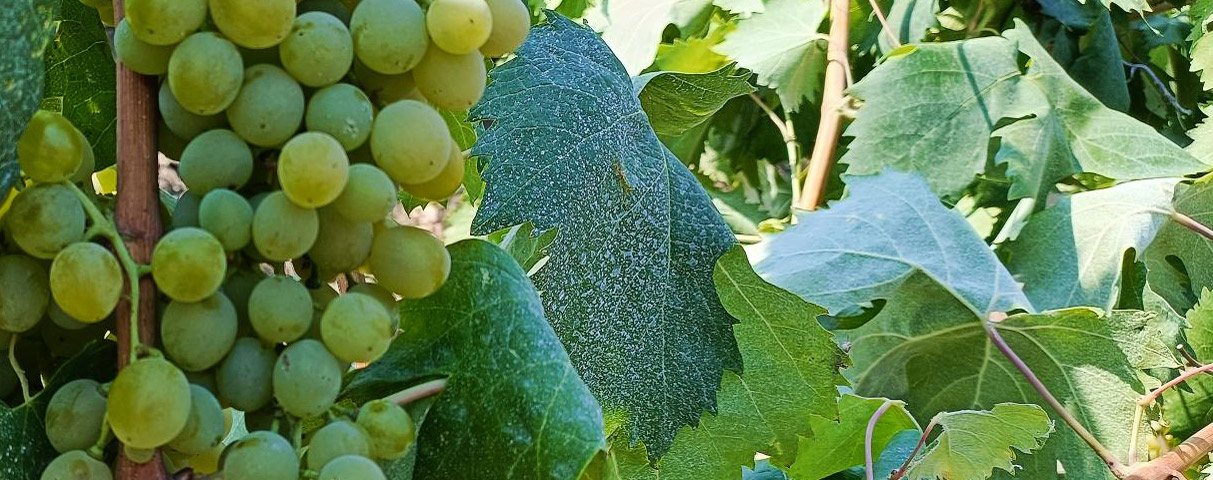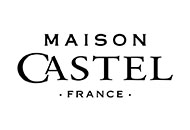Their results show the potential efficacy of using kaolin to alleviate summer-related stress in grapevines.

The study was carried out in one growing season in the commercial vineyard Quinta dos Aciprestes (above) in the hot and dry Douro Superior subregion. Twelve rows in triplicate of the Touriga Nacional variety underwent foliar kaolin treatment (applied at the pre-veraison stage, at the manufacturer-recommended dosage of 5% (w/v), supplemented with 0.1 % (v/v) Tween 20 to improve adherence), and another 12 rows comprised the non-treated control group.

Kaolin – a white inert clay mineral that reflects potentially damaging ultraviolet and infrared radiation – increased the phenolic compound and tartaric acid concentrations (2.4% and 20.8% respectively), total acidity (2.4%), the deep reddish colour of the berries, total and coloured anthocyanin (2.8%), and total and polymeric pigments (3.6%); meanwhile, a decrease was observed in pH (-1.4%) and alcoholic degree (-4.8%).
The reduction in alcohol content can be attributed to the shading effect that kaolin has on grapevine berries, which reduces water loss from the fruit and can also delay the maturation process.
The higher levels of tartaric acid in the wines made from kaolin-treated berries, and thus their higher total acidity, can be attributed to the reduced degradation of the acids due to the healthy leaves protecting the berries from the sun as well as to the shading effects of kaolin. Due to the higher acid concentration of the wine from the kaolin-treated berries, its pH was lower. Higher concentrations of organic acids, particularly tartaric acid, are desirable in grapevine varieties that thrive in warm climates, such as the region under study and other areas highly vulnerable to climate change.
No significant differences were observed in any sensory parameters between the wine from the kaolin-treated and control vines, but the tasters found the aroma of the former to be fruitier and more complex, with an agreeable acidic taste and persistence.
The paper, published in OENO One Vol. 58 No. 2 (2024), says the application of kaolin shows potential for producing well-balanced wines, while decreasing the need for extensive and expensive must or wine acidification processes.
It concludes: “Kaolin application is a promising low-cost strategy for mitigating climate change, increasing fruit and wine quality, protecting vines against abiotic stress and producing more balanced wines.”
Comparing foliar treatments
Researchers in Italy have conducted a comprehensive study, over two growing seasons, on the effects of foliar mineral treatments – kaolin and zeolite – on Sangiovese vines: on the evolution of berry composition, flavonoid gene induction and berry microbial population (total fungi, Hanseniospora uvarum, Metschnikowia pulcherrima, plant-associated bacteria and lactic acid bacteria).Foliar treatments with mineral-based compounds, such as kaolin (a phyllosilicate white mineral) and zeolites (belonging to the mineral group of aluminium silicates), have been found to be successful short-term, sustainable strategies to cope with high-temperature stress in vineyards, improving the colour of grapes and wines without altering the sugar concentration. They reduce the canopy temperature and increase berry quality.
Additionally, the foliar application of kaolin has been proven to increase the total phenols, flavonoids, anthocyanins and vitamins content of berries, and enhance the photosynthetic activity of vines. Kaolin and zeolites application has also been proven to reduce the appearance of sunburn-induced damages (that is, necrosis, shrivel and browning) and to control the occurrence of grapevine pests and diseases.
Experiments were performed on Sangiovese vines at the experimental vineyard of the University of Bologna during two growing seasons (2019 and 2020). Both mineral treatments were able to cause the elicitation of several flavonoid-related genes and to increase the anthocyanin concentration in berries without an alteration of the final technological maturity (TSS, TA, pH) of the grapes. Interestingly, neither kaolin nor zeolites negatively affected the analysed microbial population at harvest despite transient alterations observed in the more stressful year (2019).
The study, published in OENO One Vol. 58 No. 3 (2024), showed that foliar mineral treatments increased anthocyanin concentration in grape berries and protected them from excessive heat without altering their native microorganisms.
Zeolite-treated plants showed a higher elicitation of anthocyanins-related genes compared to kaolin, strengthening the hypothesis that while kaolin effects are mostly linked to improvement of grape microclimatic conditions, zeolite might act as an elicitor of flavonoid-biosynthesis-related genes.
The results support the use of foliar mineral treatments to ameliorate anthocyanins concentration in grapes, protecting them from excessive heat without altering their native microbiota.

 English
English French
French




.png)


.png)




